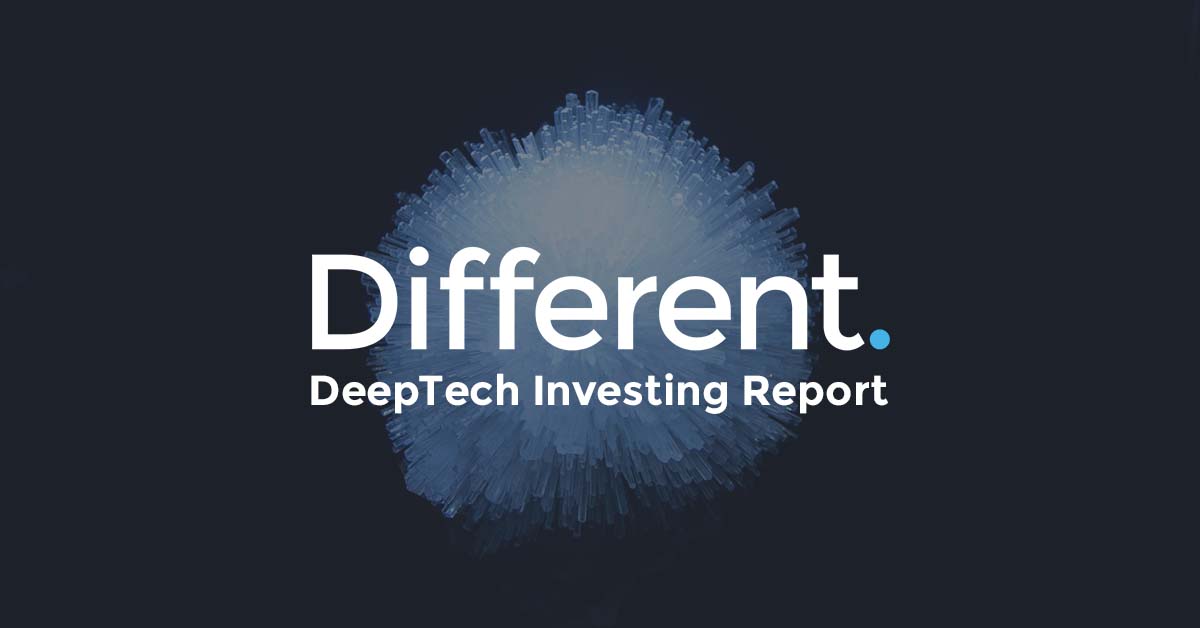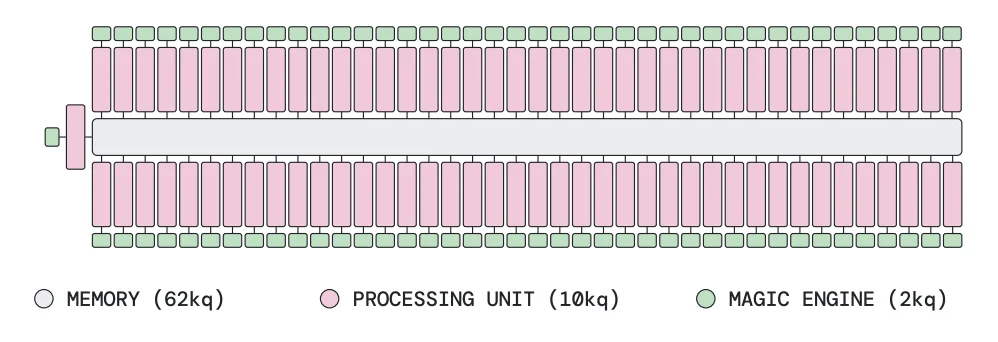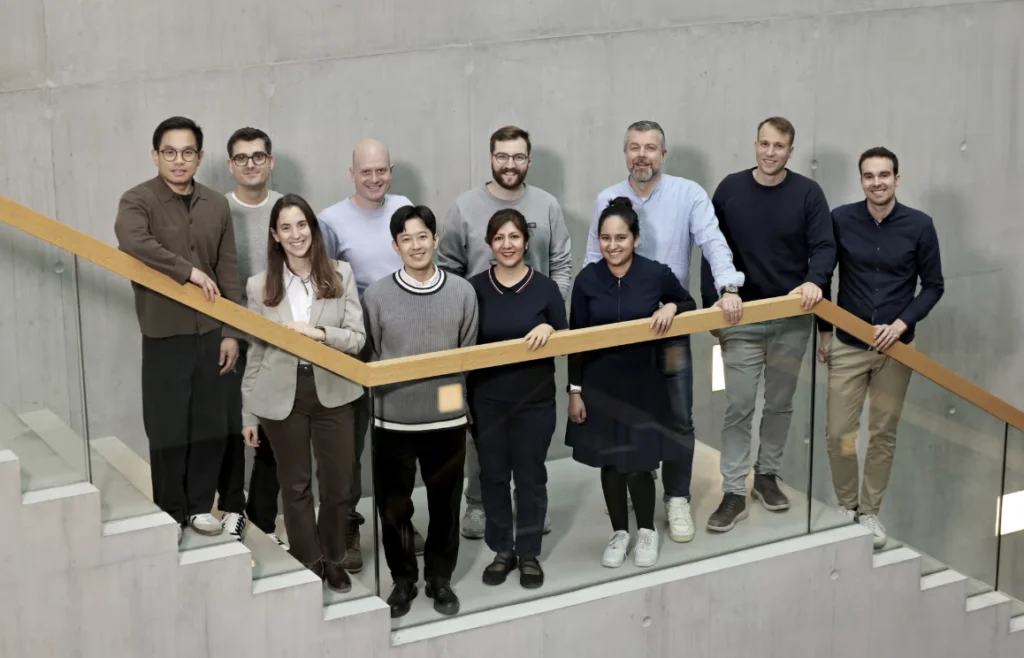
For many investors looking for new opportunities, deep tech is well-named. It’s deeply interesting and, often, deeply intimidating.
Different Funds, which helps institutions and family offices discover, analyze and select venture capital funds, believes that investing in advanced technologies can also be deeply rewarding and maybe even extremely profitable.
Different Funds recently published Deep Tech Investing 2020, which offers an assessment of the challenges and opportunities in advanced technology investments, while also offering investors strategies and tools to mitigate some of those risks and help seize opportunities.
The report covers the basics of Deep Tech, which, as with almost everything in advanced technologies, isn’t as basic as it sounds. In fact, it’s hard to find even a common definition of just what deep tech is, said Mack Kolarich, co-founder and chief product officer, Different Funds.

While most experts would include market segments and technologies, such as artificial intelligence, robotics, space, quantum computing and bioinformatics, and the research challenges associated with these technologies, as part of their definitions, Different Funds, however, found that another approach to defining deep tech is not through the challenges, but through its opportunities.
The report states: “Many of our interviewees described ‘DeepTech’ as ‘any company or product solving big problems.’ They think in terms of challenges or opportunities versus particular applications or market segments.”
In other words, advanced technologies may contain solutions to everything from climate change to deep space exploration and from cancer cures to increased food production.
Despite the seemingly endless benefits and importance of the solutions, deep tech startups still face a considerable capital gap, Different Funds concludes.
Investment Challenges and The Capital Gap
Several investor challenges that are likely behind this capital gap surfaced as the Different Fund team investigated the subject for their report.
One challenge investors face when taking positions in the deep tech industry is the difficulty of performing due diligence on potential companies or startups, according to Kolarich. The sheer complexity of the innovations and the need for specific knowledge to understand their potential may intimidate investors. Finding the necessary expertise outside the firm may be difficult, Kolarich said.
“When we talked with investors for the report, we found that many feel that the lack of knowhow in house to be able to vet and feel comfortable about investing in an advanced technology is a real challenge,” said Kolarich. “One of the challenges is: Are you even capable of vetting the company? Are you able to, for example, see if this battery recycling plant can actually do what it says it’s going to do? Or do you have a network of peers and co-investors that you trust to help you find that out?”
Other factors, such as how the typical venture capital playbook works and the mechanics of academia and university research processes, add to this deep tech capital gap.
Obvious and Non Obvious Opportunities
From a pure social good point of view, deep tech offers solutions — advanced materials, new energy technology and cutting-edge medical treatments and cures, to name just a few — that can tackle issues that have achieved crisis levels today.
Kolarich said without proper investment and funding many of these solutions may never reach their full potential.
“We have many neglected areas,” said Kolarich. “Look at what’s going on with the climate, look at the hurricane that just hit Louisiana, all the wildfires. And we could have a lot more crises out there and we don’t know what most of them are going to be. Advanced technologies can help us overcome or mitigate this. If we don’t have those ready, or close to ready when we need them, we may be in real trouble. And so from a humanity standpoint, that’s such a huge factor to kind of bear in mind.”
Tackling these monumental problems may partially obscure the ultimate benefit for certain investors: the chance to leave a legacy that goes beyond the balance sheet, a chance to improve the lives of people for generations to come.
“For a family office that may be managing a large amount of assets, one area to think about is legacy,” said Kolarich. “It is a question of what kind of legacy your family is going to leave behind.”
While investing in some companies may pay off quickly and generate massive returns, these companies may operate in areas that an investor would not want to be associated with and have little redeeming value to society now, or to future generations.
“Maybe it wouldn’t be leaving behind nearly 1700 libraries, but what if your dollars in investments helped leave behind 1700 genetic and proteomic libraries? Something that lays the groundwork for hundreds of years of growth and potential that benefits humanity. That’s one interesting way to think about investing in deep tech.”
Kolarich likens this decision to ones made by benefactors, such as Andrew Carnegie, who built thousands of public libraries, except adding a deep tech twist.
“You can make a lot of money and live very comfortably investing in some areas, but do you want to do something bigger?” said Kolarich. “Are you going to become a Carnegie? And maybe it wouldn’t be leaving behind nearly 1700 libraries, but what if your dollars in investments helped leave behind 1700 genetic and proteomic libraries? Something that lays the groundwork for hundreds of years of growth and potential that benefits humanity. That’s one interesting way to think about investing in deep tech.”
 Another problem is one of optics, Kolarich added. Deep tech investments can be good socially — and offer a great potential to be profitable.
Another problem is one of optics, Kolarich added. Deep tech investments can be good socially — and offer a great potential to be profitable.
“There’s a perception that you can’t make good returns investing in advanced technologies, because of the high risk, we don’t think that’s true,” said Kolarich. “There are certainly areas that are far from commercialization, but, at some point, that tech is going to be commercialization ready. We focus our research on that gap. We know there’s a host of advanced technologies that are ready to go to the market — now, they still need help and they still may be risky — but these technologies may still give you the opportunity to make great returns.”
Patient Investing
For patient investors, the time it takes advanced technologies to become commercialized and profitable may not be a challenge at all, rather, taking a position in the company when its valuations are low could be seen as an advantage.
“Some investors want to see success stories in an industry or a sub-sector of an industry before they’re willing to place a bet, but if you wait to see those success stories, you’re probably going to be too late,” said Kolarich. “Because when we talk about advanced technology companies, we’re talking about great innovation and if once these success stories start to happen, there’s probably 10 other great companies that somebody else has funded that are in the growth pipeline.”
Currently, as the capital gap demonstrates, organizations are under-investing in advanced tech, which means that valuations might be lower and there’s less competition, he added.
Staying Out of the Dark in Deep Tech
Seizing these opportunities in advanced tech requires an astute understanding of the space and a thorough grasp of risk management. As mentioned, in many cases, investors — both individual and even institutional ones — do not have the ability to conduct the necessary due diligence for advanced technologies, Kolarich explains.
There’s another option to going it alone in Deep Tech. Investors may choose instead to invest in funds that are familiar with deep tech, or even ones that currently manage capital allocations in that space. However, Kolarich said that this does not relieve the investor from the burden of vetting. Instead of vetting technology, however, they must now make sure the venture capital firm, private equity, or other type of investment manager can handle the allocation.
“The questions now shift to how do you vet that firm, how do you vet the manager? How do you figure out if this manager actually knows what they’re doing?” said Kolarich.
“You probably should not have deep tech VC funds as your entire investment portfolio. But could these funds be 5% or 10% of the portfolio — or somewhere in the calculation, maybe, yes. And, the exciting part is, that these funds could potentially generate the largest upside in your investment portfolio.”
To help Different Funds has developed the deep tech score for venture capital firms to help investors investigate whether a firm is invested in deep tech. They examined 10,000 portfolio companies of all these funds, applied their definition that was built for the Deep Tech research project to all the portfolio companies and built a composite score for every VC firm.
According to Kolarich, every investor doesn’t need to be in deep tech, nor does every deep tech investor need to be weighted heavily in deep tech. However, deep tech might be a part of the overall investment portfolio.
“You probably should not have deep tech VC funds as your entire investment portfolio,” said Kolarich. “But could these funds be 5% or 10% of the portfolio — or somewhere in the calculation, maybe, yes. And, the exciting part is, that these funds could potentially generate the largest upside in your investment portfolio.”
For more market insights, check out our latest quantum computing news here.














